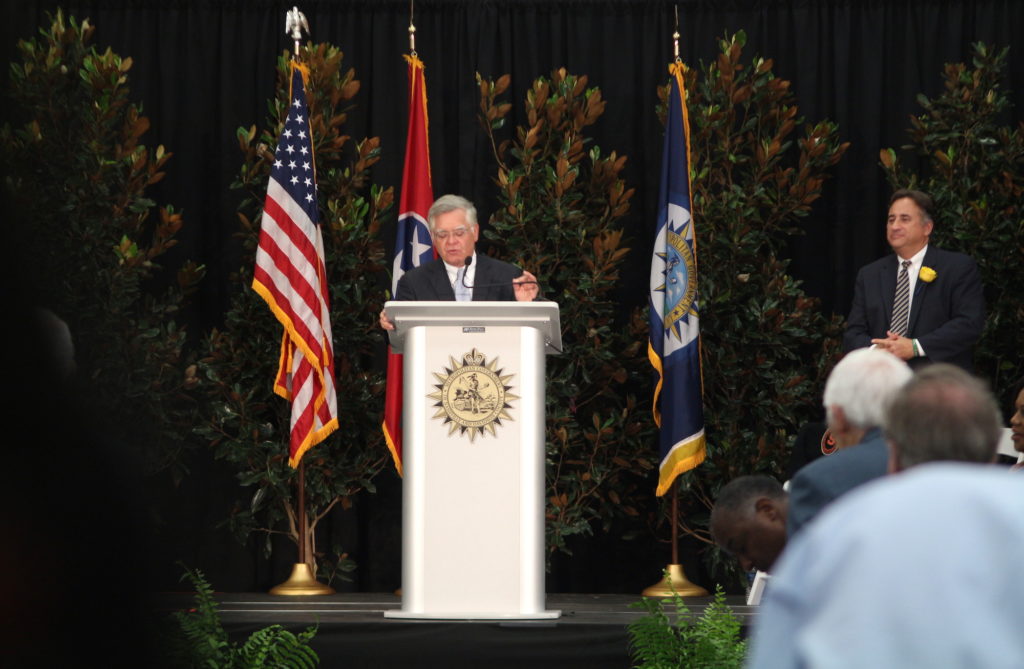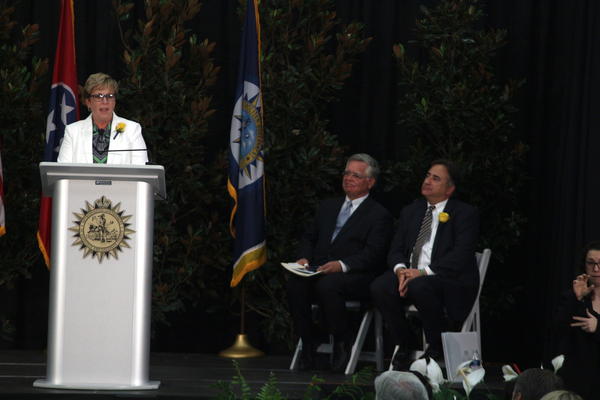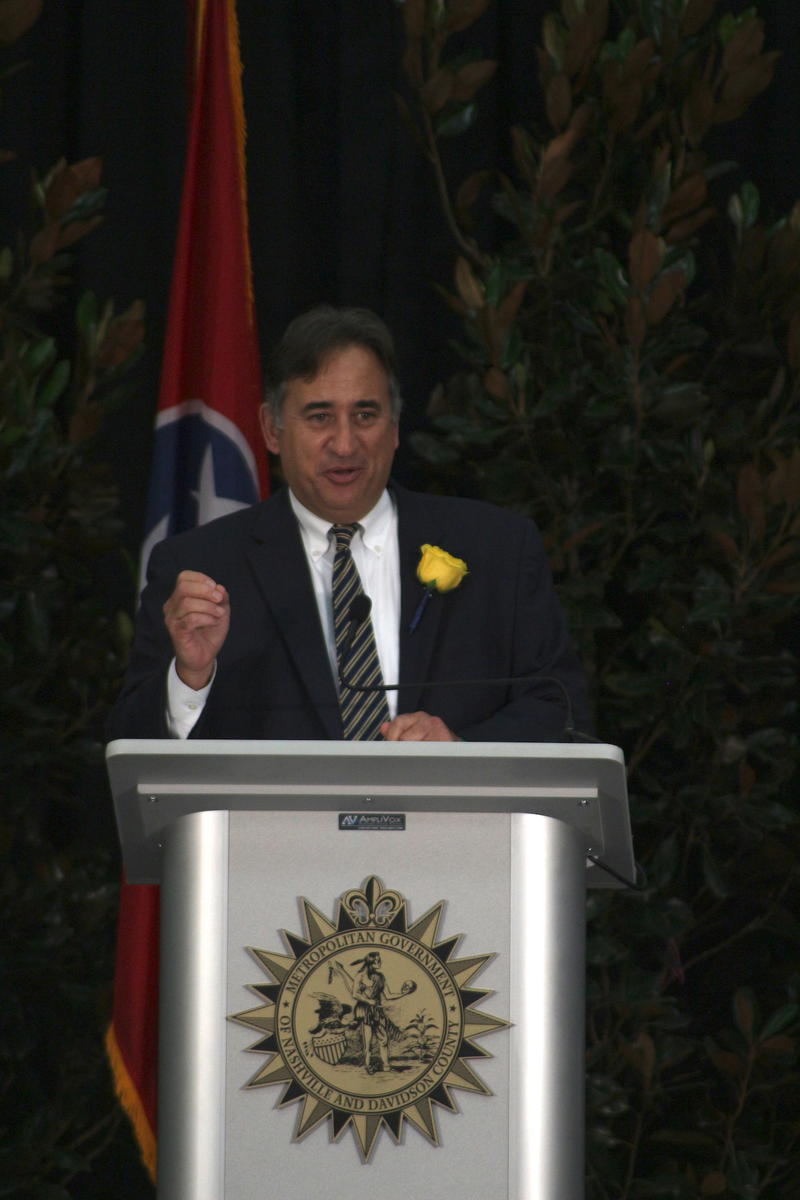
Backed by marching bands and mariachi music, new Nashville Mayor John Cooper was sworn into office Saturday with a vow to follow through on the wishes he heard from voters.
"What our fellow citizens want from us is very clear," said Cooper, who won office with 69% of the vote, "a focus on neighborhoods, a Nashville where tourism benefits residents, not the other way around. Cost-effective, fiscally responsible government that is managed for everyone. A transparent, open government committed to high standards."
Cooper told the audience at Stratford STEM Magnet High School that these goals fit under the umbrella he campaigned under: To make a Nashville that works for everyone.
He says his administration will pave more sidewalks, protect the tree canopy and build a sustainable city.
The mayor also reiterated a campaign message that resonated deeply with voters — that it's time for Nashville to spread the benefits of growth.
"Some people seem to think revenues generated downtown should stay downtown. I disagree," Cooper said. "The people of Nashville made an investment. Now is the time to spread the benefits of growth — not just the costs — to all our neighborhoods."
More:
Hear the mayor's full speech.
The new mayor has called for the "next chapter" in Nashville, where more people prosper.
"We got the growth, and now we have to manage it to make our lives better and not worse," he said.
City's Challenges Noted
Yet Cooper was not the only leader to speak Saturday — and by the time he reached the podium, hints of a prickly political fight had already surfaced.
Newly elected Councilwoman Emily Benedict, in an otherwise friendly speech, used the moment to rebut one of Cooper's central campaign promises.
She said voters want Metro to end its "austerity budget" and to fully support teachers, police, firefighters and city employees — and that a tax increase would be necessary.
"We may believe the silver budget is tourist-generated," she said, "but the fact is, our tax rate decreased by 30% two years ago and it's no wonder that our city is broke."

Benedict's solution: "We must make the sacrifices that our public servants have made for far too long. Which means we must get back to a normal tax rate, and the time to do that is now."
For two years, Cooper has stood against a property tax increase. He campaigned on a promise to find other revenues to fund the government.
In his own speech later, Cooper acknowledged Metro's "fiscal challenges."
"Our sewers and water lines are antiquated. The city's balance sheet is stretched thin," he said. "I've been told that I care too much about the numbers. But if we don't get the money right, we can't get anything else right."
Cooper also spoke frankly about challenges within Metro Schools, including at the school that played host to the ceremony.
"It started the year without a chemistry or Spanish teacher. We are struggling to recruit and retain teachers. Teachers struggle to lead middle-class lives. That has to change," Cooper said.
But the new mayor ended on an optimistic note, saying that Nashville is the envy of other cities.
"Our tax base is increasing. We all know people want to move here. We got the growth. And now we have to manage it to make our lives better and not worse," Cooper said. "Now is the time to decide — with confidence — how we want to succeed as a city."
Diverse Leadership In Nashville
The unprecedented diversity of the Metro Council propelled several of the remarks Saturday.

The new 40-member council now includes its first Latina and first Muslim members; 20% of members identify as LGBTQ; and a quarter are African-American.
And there's now an equal split between men and women— a fact that was mentioned in three speeches and which drew a standing ovation.
"Your representatives reflect you better than ever before," said Benedict, who is among the LGBTQ council members — and who delivered portions of her speech in Spanish.
Cooper called the council a "gorgeous mosaic" that makes the city stronger.
Vice Mayor Jim Shulman will preside over that council. He said the pace of change will challenge the group.
"Big changes bring big issues and big problems. They are not easily solved and take tremendous focus and energy and a great deal of effort. And they require tough —very tough — decisions."


